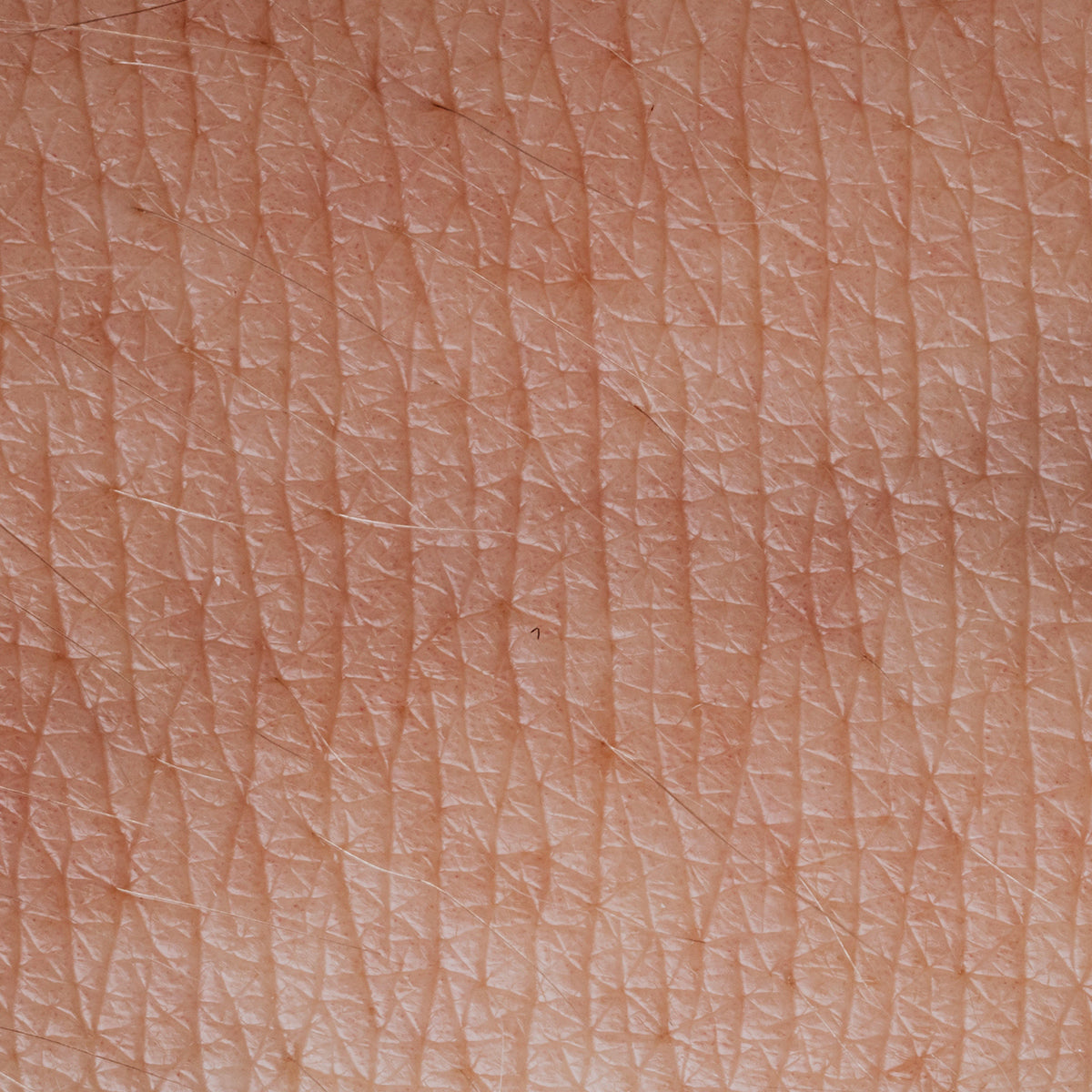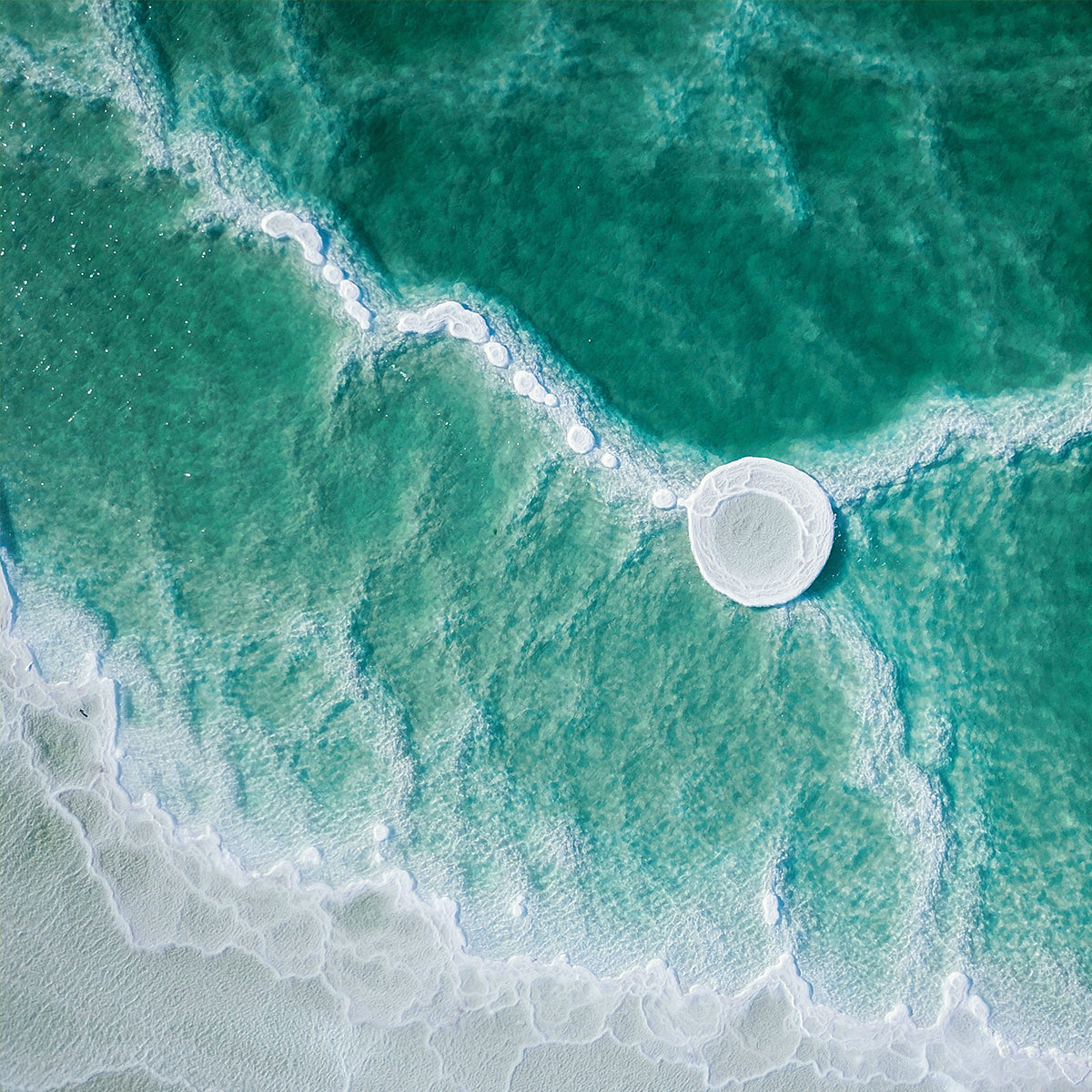
Our skin (from ancient Greek δέρμα derma and Latin cutis) is the most versatile organ in the body. It covers the entire surface of the body and acts as a barrier, separating the organism from the outside world. The skin serves as a protective shield against dehydration and harmful influences, such as pathogens. It is also an essential organ for respiration and metabolism.
Facts About Our Skin
- The largest organ in the body
- In a medium-sized adult, the skin covers an area of 1.5 to 2 square meters
- With an average thickness of 2 millimeters, the skin weighs around 3.5 to 10 kilograms
- The color of the skin depends on factors such as pigment content, blood flow, and the thickness of the epidermis
How is Our Skin Structured?
Our skin is composed of three layers:
- 1. Epidermis (Outer Layer) – Primarily made up of a horny layer that is constantly regenerating
- 2. Dermis (Middle Layer) – Comprised of dense connective tissue and containing oil glands
- 3. Subcutis (Inner Layer) – Consists of loose connective tissue and stored fat
- The skin also includes appendages such as hair, nails, sweat glands, and sebaceous glands.
What Functions Does Our Skin Have?
The importance of our skin can be illustrated by a simple example. Did you know that losing as much as 20% of your skin, such as in the case of a severe burn, can be fatal? The skin performs several vital functions, including:
Protective Function of The Skin
The outer layer of the skin, known as the stratum corneum, serves as a barrier, protecting our body from the penetration of pathogens, dirt, and harmful substances. It also helps prevent excessive water loss through evaporation. Additionally, the sweat and sebaceous glands produce a protective acid mantle on the skin, which maintains a specific pH level. The acidic pH has antimicrobial properties, inhibiting the growth of certain bacteria and fungi.
Internal Protective Function
What we don’t see is that our skin also plays a protective role internally. The immune defense response involves the production of antibodies. Langerhans cells in the epidermis activate the body's defense system. In response, blood and lymph are directed to the affected area, and the skin reacts with typical symptoms of irritation, such as redness, rashes, and swelling.
Thermoregulation
By contracting or dilating the blood vessels in the skin, the body can regulate heat release or retention, helping maintain an optimal internal temperature.
Excreting substances: The sweat glands help remove various substances from the body, such as salts and waste products.
Vitamin D production: The skin plays a key role in the production of vitamin D when exposed to sunlight, which is essential for calcium absorption and bone health.
Sensory Perception
Our skin is also our largest sensory organ. Through specialized receptors in its various layers, it detects stimuli such as touch and responds accordingly. This ability is known as surface sensitivity.
Other Important Functions of the Skin
Salt Shower to Care for Our Skin

NATURAL CARE FOR PROBLEMATIC SKIN
THE ALTERNATIVE TO SALT BATHS FOR SENSITIVE, DRY AND REDDENED SKIN.
TO THE STARTER SETSHOWER+ FOR OUR SKIN
The Shower+ salt shower is designed to care for our skin and help maintain its natural functions and pH balance. Pure sea salt gently cleanses, clarifies, and moisturizes the skin. The salt shower is especially gentle and soothing. Its 100% natural formula, enriched with naturally nourishing ingredients from sea salt and essential oils, provides a calming and beneficial effect.

EVERYTHING FOR THE SALT SHOWER
THE SHOWER+ STARTER SET BRINGS THE SEA DIRECTLY INTO YOUR SHOWER. IMMERSE YOURSELF IN A UNIQUE SHOWER EXPERIENCE AND LET THE POWER OF SALT CARE FOR YOUR SKIN.
TO THE STARTER SET



Leave a comment
This site is protected by hCaptcha and the hCaptcha Privacy Policy and Terms of Service apply.